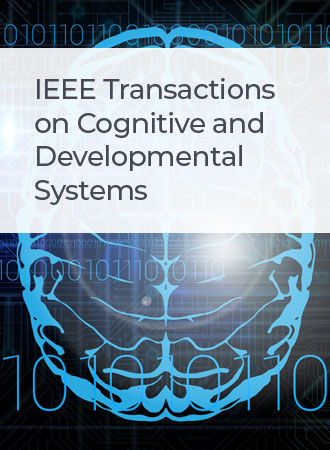Deep-Reinforcement-Learning-Based Driving Policy at Intersections Utilizing Lane Graph Networks
IF 5
3区 计算机科学
Q1 COMPUTER SCIENCE, ARTIFICIAL INTELLIGENCE
IEEE Transactions on Cognitive and Developmental Systems
Pub Date : 2024-04-02
DOI:10.1109/TCDS.2024.3384269
引用次数: 0
Abstract
Learning an efficient and safe driving strategy in a traffic-heavy intersection scenario and generalizing it to different intersections remains a challenging task for autonomous driving. This is because there are differences in the structure of roads at different intersections, and autonomous vehicles need to generalize the strategies they have learned in the training environments. This requires the autonomous vehicle to capture not only the interactions between agents but also the relationships between agents and the map effectively. To address this challenge, we present a technique that integrates the information of high-definition (HD) maps and traffic participants into vector representations, called lane graph vectorization (LGV). In order to construct a driving policy for intersection navigation, we incorporate LGV into the twin-delayed deep deterministic policy gradient (TD3) algorithm with prioritized experience replay (PER). To train and validate the proposed algorithm, we construct a gym environment for intersection navigation within the high-fidelity CARLA simulator, integrating dense interactive traffic flow and various generalization test intersection scenarios. Experimental results demonstrate the effectiveness of LGV for intersection navigation tasks and outperform the state-of-the-art in our proposed scenarios.利用车道图网络制定基于深度强化学习的交叉路口驾驶策略
在交通繁忙的交叉路口场景中学习高效、安全的驾驶策略,并将其推广到不同的交叉路口,对于自动驾驶来说仍然是一项具有挑战性的任务。这是因为不同交叉路口的道路结构存在差异,自动驾驶车辆需要将其在训练环境中学到的策略加以推广。这就要求自动驾驶汽车不仅要捕捉到驾驶员之间的互动,还要有效地捕捉到驾驶员与地图之间的关系。为了应对这一挑战,我们提出了一种将高清(HD)地图和交通参与者的信息整合为矢量表示的技术,称为车道图矢量化(LGV)。为了构建交叉路口导航的驾驶策略,我们将 LGV 纳入了带有优先经验重放(PER)的双延迟深度确定性策略梯度(TD3)算法中。为了训练和验证所提出的算法,我们在高保真 CARLA 模拟器中构建了一个用于路口导航的健身房环境,其中集成了密集的交互式交通流和各种通用测试路口场景。实验结果证明了 LGV 在交叉口导航任务中的有效性,在我们提出的场景中,LGV 的表现优于最先进的算法。
本文章由计算机程序翻译,如有差异,请以英文原文为准。
求助全文
约1分钟内获得全文
求助全文
来源期刊

IEEE Transactions on Cognitive and Developmental Systems
Computer Science-Software
CiteScore
7.20
自引率
10.00%
发文量
170
期刊介绍:
The IEEE Transactions on Cognitive and Developmental Systems (TCDS) focuses on advances in the study of development and cognition in natural (humans, animals) and artificial (robots, agents) systems. It welcomes contributions from multiple related disciplines including cognitive systems, cognitive robotics, developmental and epigenetic robotics, autonomous and evolutionary robotics, social structures, multi-agent and artificial life systems, computational neuroscience, and developmental psychology. Articles on theoretical, computational, application-oriented, and experimental studies as well as reviews in these areas are considered.
 求助内容:
求助内容: 应助结果提醒方式:
应助结果提醒方式:


